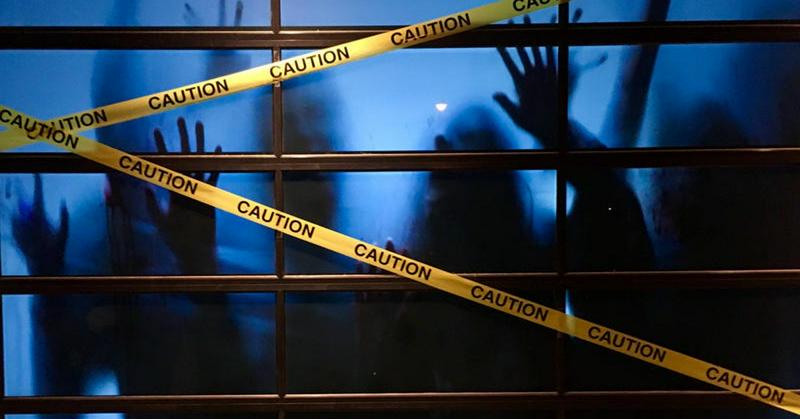A History Of Zombies
By | October 22, 2022

It may feel like zombies were cooked up in a Hollywood studio, considering how many T.V. shows and films are dedicated to their shuffling steps, infectious bites, and hunger for brains, but the idea of zombies goes back hundreds of years, with roots even darker than the darkest horror movie. In the 1800s, during the era of chattel slavery, the zombie (or "zombi," as it was spelled then) was born in Haiti, where Voodoo was a common religion. Among the enslaved Haitian population, tales began to arise of forced servitude even after death.
According to these tales, bokors, or necromancers, reanimated the bodies of the dead to force them to continue working, which was considered far worse than being stuck in the ground, as it gave no rest to the body and trapped the soul. It sounds farfetched, but there was some factual basis to this fear. There was even an article in the Haitian penal code outlawing the zombification of enslaved people, which read:
Also shall be qualified as attempted murder the employment which may be made by any person of substances which, without causing actual death, produce a lethargic coma more or less prolonged. If, after the administering of such substances, the person has been buried, the act shall be considered murder no matter what result follows.

It wasn't witchcraft, however, that was said to produce this "lethargic coma." Those who reported tales of zombies claimed drugs were fed to slaves which gave them the appearance of the walking dead, specifically the neurotoxin tetrodotoxin, found in poisonous fish. When combined with local psychedelic plants, it was believed to put a person in a paralytic state that resembled death, and when they awoke, they seemed to be trapped in a trance. It's possible, however, that this was simply a cultural belief stemming from the trauma of enslavement. There's no proof beyond witness accounts.

Regardless, the idea of reanimating the dead bled into the horror genre over the next centuries, from Mary Shelley's Frankenstein in 1818 to the 1932 Bela Legosi flick White Zombie. However, the most iconic version of the zombie, that of a decaying corpse with little on its mind beyond eating the flesh of the living, is largely attributed to the 1968 George A. Romero classic Night Of The Living Dead. Technically, the film is in the public domain and therefore legal to rip off as much as you want, enabling so many thereafter to do just that.

